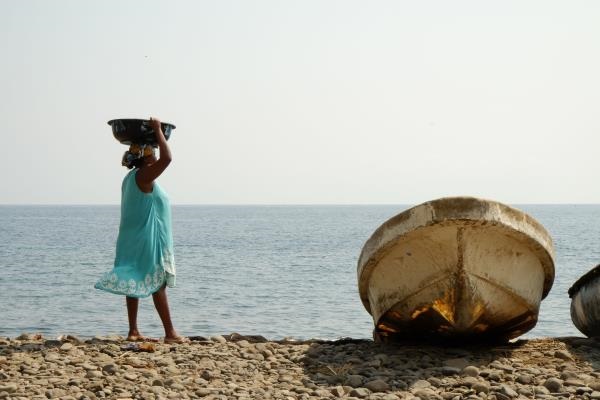
16 July, 2018, Ilha do Sal, Cape Verde - FAO Director-General José Graziano da Silva today reiterated his support to the Community of Portuguese Language Countries (CPLP) in the implementation of their Regional Strategy for Food Security and Nutrition to eradicate hunger and ensure adequate food in the lusophone countries.
He stressed that FAO will continue to support the work of the National Food and Nutritional Security Councils (CONSAN), that have been set up in seven of the bloc’s nine member states (Brazil, Cape Verde, Mozambique, Sao Tome and Principe, Timor-Leste, Guinea-Bisau and, as of last week, Portugal)) and said he hoped that both Angola and Equatorial Guinea would follow their example.
"National Councils are fundamental to promote better governance of the Regional Strategy and an inclusive dialogue between the various governmental and non-governmental actors," said Graziano da Silva, addressing the Second Meeting of the Food and Nutrition Security Council of the CPLP taking place this week in Cape Verde.
"Today, more than ever, it is essential to listen to and consider the opinions of international organizations, civil society, the private sector, parliamentarians, research institutes and the academic world," he added. Graziano da Silva reiterated that only by working together, the international community will be able to overcome the challenges for sustainable development and ensure that no one is left behind in the implementation of the 2030 Agenda.
Ulisses Correia e Silva, Prime Minister of Cape Verde, emphasized the importance of raising the status of CONSAN as an advisory body to CPLP Heads of State and Government, suggesting that is regular meetings always be held on the sidelines of CPLP summits.
The Santa Maria Declaration adopted today by CONSAN-CPLP recognized Graziano da Silva’s work and leadership as FAO Director-General and his efforts to make it a more efficient and effective organization in support of member states for the implementation of the 2030 Agenda.
The community of Portuguese-speaking countries includes Angola, Brazil, Cape Verde, Guinea-Bissau, Mozambique, Equatorial Guinea, Portugal, Sao Tome and Principe and Timor Leste.
Support for family farming and rural women
In his speech, Graziano da Silva highlighted the crucial importance of supporting family farming through public policies and intersectoral programs, and the need to empower rural women in the CPLP countries in order to achieve sustainable development.
FAO’s Director-General also warned that the strategy of increasing food production at any price has not been enough to eradicate hunger nor to avoid the global epidemic of obesity and overweight, and that it has had an enormous environmental cost due to the intensive use of chemicals and natural resources.
"Soil, forests, water, air quality and biodiversity continue to deteriorate. We must promote a transformative change in the way we produce and consume food. We have to put forward sustainable food systems that offer healthy and nutritious food, and also preserve the environment,” he said.
He also encouraged the adaptation of agricultural and food systems to the impact of climate change, especially s floods and droughts will become more frequent, as is already the case in Cape Verde.
Promotion of healthy diets
FAO Director-General also appealed to Portuguese-speaking countries to address the rising rates of obesity, which he described as “alarming” in develop and developing countries alike.
In 2017, he explained, almost two billion adults were overweight in the world, of whom around 700 million are obese.
"Excessive consumption of processed foods rich in salt and sugars is the main factor behind the increase in obesity,” he said. “Countries must face this situation by encouraging healthy diets through public policies that allow consumers to know the benefits and harms of what they are eating," he said.
Tackling the problem requires redoubling efforts in nutrition education, especially for mothers and children, and improving the information available to consumers through the regulation of food labeling and advertising, he added